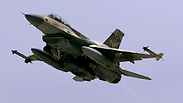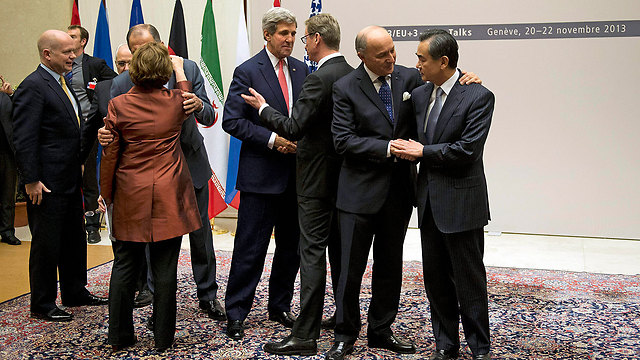
Israeli strike on Iran would be a 'grave mistake' while talks continue
Israeli nuclear experts warn concessions Tehran has made so far on nuclear program are easily reversible.
An Israeli attack against Iran's nuclear facilities is not a relevant option as long as Tehran continues negotiating with world powers over its atom program, Israeli nuclear experts said Thursday.
An International Atomic Energy Agency (IAEA) report released last week noted that Iran has been significantly reducing its most sensitive nuclear stockpile, in accordance with an interim deal signed in November with world powers.
The IAEA report showed that since January, Iran had acted to reduce its stockpile of higher-grade enriched uranium gas – a relatively short technical step away from weapons-grade material – by more than 80 percent.
Related stories:
- IAEA: Iran sharply cutting nuclear stockpile
- IAEA, Iran agree on new transparency measures
- UN report challenges Iran on ballistic missile program
Despite Iran's compliance with the terms of the deal, Israeli nuclear experts stress all of the moves Tehran has made in the hopes of gaining sanctions relief are reversible. So, if the Islamic Republic wanted to resume its attempts to produce a nuclear bomb, it would have no trouble doing so.
"It needs to be said that everything (the Iranians) did so far will not prevent them, if they want, to change direction. All of the concessions they've made so far have been made for tactical reasons," said Prof. Meir Litvak, the director of the Center for Iranian Studies at Tel Aviv University.
Prof. Litvak asserted the Iranians were only fulfilling their obligations because sanctions imposed on the country have yet to be removed, and Tehran is under pressure to relieve the Iranian economy.
Considering the IAEA report, is an Israeli military strike on Iran still relevant?
"Israel's military option doesn't exist right now because there is no chance the Americans would give Israel a green light for a military operation as long as there are negotiations with Iran on a permanent agreement."
Prof. Litvak warned that "an Israeli military strike against Iran while international negotiations under the auspices of the United States continue would be a grave mistake. It would be an irresponsible move."
Dr. Emily B. Landau, the head of the Arms Control and Regional Security Program at the Institute for National Security Studies (INSS), noted that while the Iranians are indeed complying with the interim agreement, their commitment is very limited.
"At first we heard a lot about the fact Iran is stopping its (nuclear) activity and in return receiving sanctions relief to give them some breathing space to negotiate a permanent agreement. But in actuality, it all comes down to their commitment to stop 20 percent uranium enrichment, and diluting the existing stockpile of 20 percent enriched uranium."
While the IAEA report notes the Iranians now have very few kilograms of 20 percent enriched uranium left, "you have to remember these processes are reversible. Meaning, you can turn the diluted uranium back to 20 percent," Dr. Landau said. "So while they are complying with the interim agreement, they continue 5 percent uranium enrichment."
Iran also continues research and development of new and advanced centrifuges that can spin at very high speeds, an issue that is not addressed in the interim agreement.
"It's very concerning, because the moment you have centrifuges that spin in much higher speeds, you can enrich the 5 percent uranium to levels higher than 90 percent, much faster," Dr. Landau explained.
"It neutralizes the importance of limiting enrichment to 20 percent. The Iranians are not allowed to use these advanced centrifuges, and they are indeed not using them, but they're allowed to conduct experiments. As long as they keep working on them, their nuclear program hasn't been stopped," she added.
Dr. Landau agreed with Prof. Litvak's assertion that as long as the international community is negotiating with Iran on its nuclear program, a military option is not realistic.
"It's unlikely the military option will be used, even though it's possible that Israel sees value in sending threats of that nature as part of a general dynamic. You have to differentiate between talking about using military force as a threat that is meant to pressure Iran during the negotiations, and actually using military force," she concluded.











